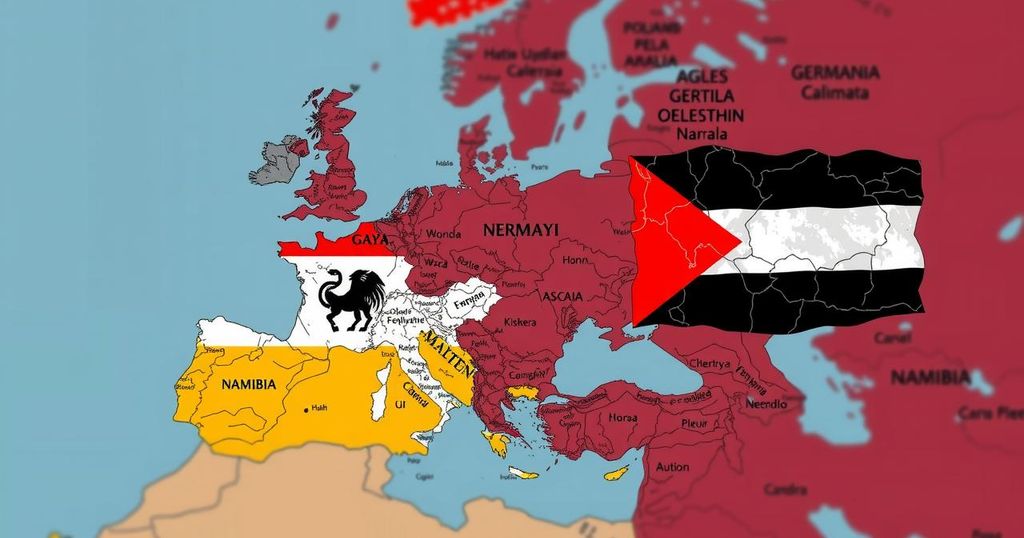The article discusses Israel’s military aggression against Gaza and Lebanon, leading to significant civilian casualties and international protests, particularly in European countries. It highlights the controversial remarks made by German officials justifying these actions, drawing historical parallels to Germany’s involvement in genocide in Namibia. The calls for accountability and an arms embargo against Israel underscore the urgent need for a reevaluation of Western support for Israel amid its ongoing military campaigns.
In recent months, Israel’s military actions against Gaza and Lebanon have escalated, resulting in extensive civilian casualties and widespread condemnation. Prime Minister Benjamin Netanyahu has linked the killings of high-ranking Hamas leaders, such as Yahya Sinwar, to a supposed resolution of the conflict, despite ongoing demonstrations protesting Israel’s military aggression. These protests are not confined to Israel but have reached several European nations, where citizens have rallied against the violence and called for an arms embargo against Israel. Amidst these protests, German officials have faced criticism for their comments justifying civilian casualties during Israel’s military operations. Specifically, Foreign Minister Annalena Baerbock suggested that the protection of civilian areas is forfeited when terrorists operate from within them, a position that has drawn accusations of complicity in genocide. This mirrors historical precedents, as both Germany and Israel have been accused of genocide—Germany for its actions in Namibia and Israel in Gaza. While the world watches, the narrative of complicity continues as Western nations remain aligned with Israel, often stifling dissent in the process.
The situation concerning Israel’s actions in Gaza and Lebanon is marked by a prolonged history of violence and political strife. Since October 2023, Israel has intensified its military operations, leading to a tragic loss of life, with reports indicating over 42,600 Palestinian deaths, including numerous children. Simultaneously, reactions across Europe have intensified, with mass protests emerging in major cities decrying the violence and urging their governments to halt military support to Israel. Amidst these tensions, German officials have made remarks suggesting justification for Israel’s actions, generating backlash and accusations of perpetuating genocide, a term that carries significant historical weight given Germany’s colonial past in Namibia and its association with genocide under Nazi rule. This juxtaposition raises ethical questions about Germany’s current political stance and historical accountability.
In summary, the ongoing conflict in Gaza and Lebanon has engendered severe humanitarian crises, prompting widespread outrage across Europe and calls for accountability. The rhetoric from Israeli officials, particularly Prime Minister Netanyahu, seeks to blame Hamas for the continued violence while protests condemn the loss of civilian lives. Germany’s stance, particularly the remarks made by Foreign Minister Baerbock, have drawn parallels to its colonial past in Namibia and have ignited debates about complicity in genocide. The international community faces a critical juncture to address these pressing moral concerns and reassess its support for Israel amidst its military actions.
Original Source: www.tehrantimes.com






